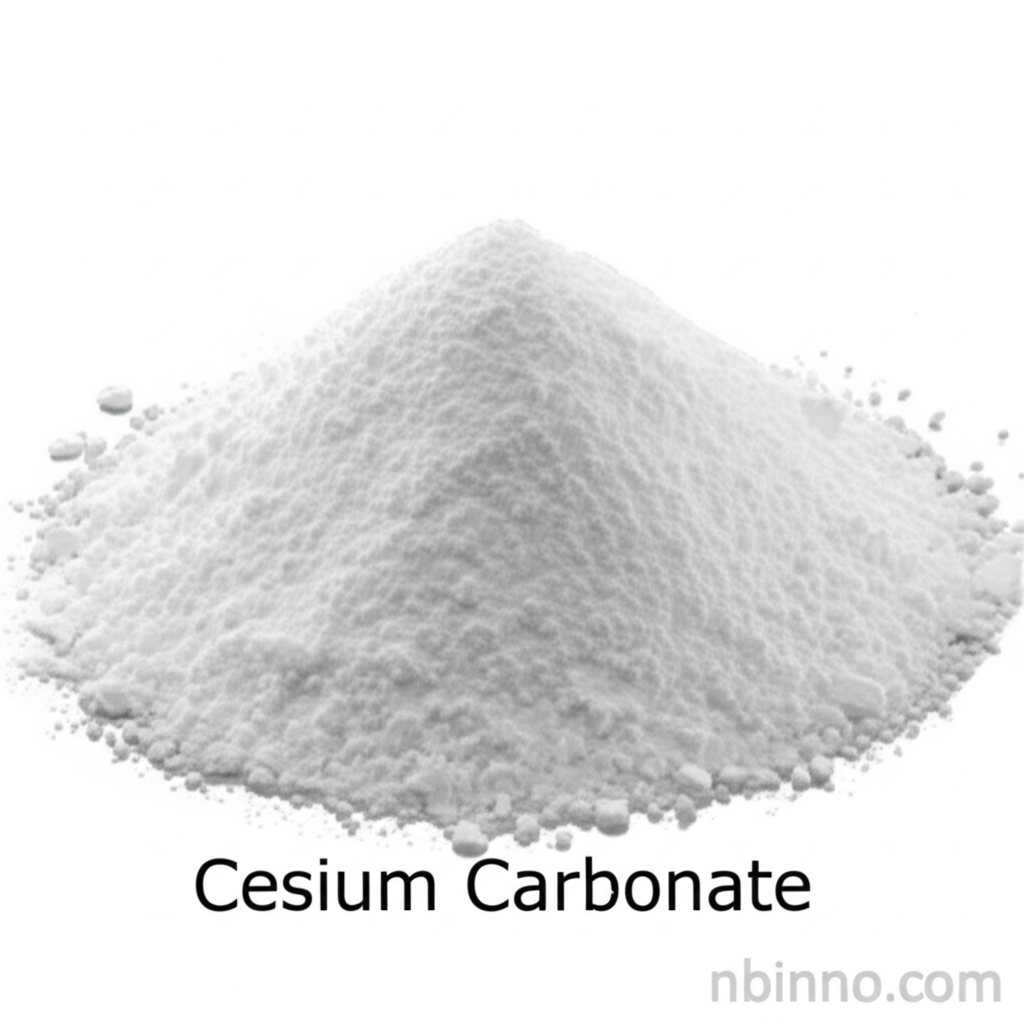Cesium Carbonate: Properties, Applications, and Synthesis in Advanced Materials
Explore the versatile applications and chemical properties of Cesium Carbonate in modern industry.
Get a Quote & SampleProduct Core Value

Cesium Carbonate
Cesium carbonate is a highly versatile inorganic compound, recognized for its critical role as a strong base and catalyst in a wide array of chemical processes. Its exceptional solubility in polar solvents like water and DMF, coupled with its hygroscopic nature, makes it a unique reagent for demanding applications.
- Cesium carbonate applications span across critical sectors, including the production of specialty optical glass, petroleum catalyst additives, and advanced ceramics, highlighting its importance in material science.
- As a key reagent in cesium carbonate organic synthesis, it facilitates complex reactions such as Suzuki, Heck, and Sonogashira coupling reactions, essential for creating intricate organic molecules.
- The compound's catalytic properties are leveraged in various industrial chemical processes, improving reaction rates and yields, making it a valuable cesium carbonate catalyst.
- In the electronics industry, it contributes to the fabrication of specialized glass and ceramics, enhancing their thermal and optical properties, a key aspect of its utility in cesium carbonate in glass manufacturing.
Key Advantages Offered
Enhanced Chemical Reactivity
Leveraging its strong basicity, cesium carbonate acts as an efficient base in organic reactions, enabling deprotonation and facilitating various synthetic pathways, crucial for achieving desired product yields in cesium carbonate organic synthesis.
Material Property Improvement
Its incorporation into glass and ceramics significantly improves thermal stability and optical characteristics, demonstrating its value in cesium carbonate in glass applications and specialty material development.
Catalytic Efficiency
The compound's ability to act as a catalyst boosts reaction rates and efficiency in numerous chemical transformations, making it a sought-after component for industrial processes, underscoring its role as a cesium carbonate catalyst.
Key Applications
Organic Synthesis
Essential for coupling reactions, N-alkylation, and cyclization, driving innovation in pharmaceutical and material sciences through precise chemical transformations.
Glass & Ceramics
Modifies refractive index and enhances durability, thermal resistance, and overall quality for specialty glass and advanced ceramic products.
Catalysis
Acts as a catalyst in various industrial processes, optimizing reaction efficiency and product yields for diverse chemical manufacturing needs.
Electronics
Used in the fabrication of specialized electronic components and in improving the efficiency of solar cells, contributing to advancements in energy and technology.
